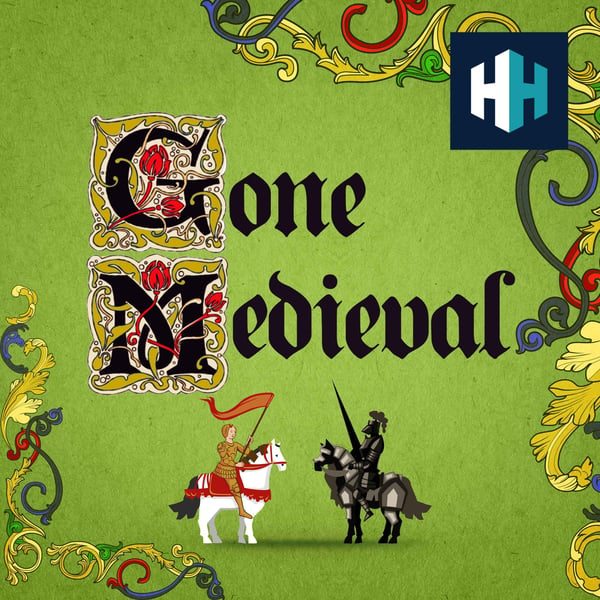How the English Accent Changed Forever
Gone Medieval
History Hit
4.6 • 2.2K Ratings
🗓️ 13 August 2022
⏱️ 28 minutes
🧾️ Download transcript
Summary
Between the fifteenth and seventeenth centuries, a profound transformation took place in the ways that the English language was spoken and words were pronounced. This “Great Vowel Shift” saw a change in the pronunciation of all Middle English long vowels, resulting in spellings of words that often deviated considerably from how they are pronounced.
In this edition of Gone Medieval, Matt Lewis talks to Simon Roper - who makes videos about linguistics for YouTube - about the developments that led to the English language changing forever.
The Senior Producer on this episode was Elena Guthrie. It was edited and produced by Rob Weinberg.
For more Gone Medieval content, subscribe to our Medieval Mondays newsletter here.
If you'd like to learn even more, we have hundreds of history documentaries, ad free podcasts and audiobooks at History Hit - subscribe today! To download, go to Android or Apple store.
Hosted on Acast. See acast.com/privacy for more information.
Transcript
Click on a timestamp to play from that location
| 0:00.0 | If you're a fan of the podcast, I've got some exciting news for you. We're publishing a book. |
| 0:04.7 | If you've ever wondered, who was the third man on the moon? Why was a pigeon a hero in the |
| 0:09.6 | American army? And wasn't Napoleon really all that small? Then the history hit |
| 0:14.0 | Missellony will have the answer. It's available for pre-order now and will be published on |
| 0:18.5 | the 28th of September. Pre-order from your favourite bookshop or visit historyhit.com forward slash book. |
| 0:24.8 | This episode is sponsored by the London Review of Books, Europe's leading magazine of books and |
| 0:33.1 | ideas. There are plenty of reasons to read the London Review of Books, the finest book reviews |
| 0:38.0 | is only one of them. There are articles by writers including James Meek, Alan Bennett, |
| 0:43.1 | Amir Shrinivasan and Patricia Lockwood. Add to this quality of writing the removal of a |
| 0:48.3 | restrictive word count and you have incredibly knowledgeable people with the space to explore their |
| 0:53.4 | ideas to the fullest. There's a vast range of topics and a huge back catalogue to explore. |
| 0:58.8 | Right now there's a very special offer said that you can give it a try. It's so good, it seems |
| 1:03.0 | rude not to and you can cancel it at any time anyway too. Go to lrb.me forward slash hit to try |
| 1:11.6 | three issues of the London Review of Books for just £1 and get six weeks of online access |
| 1:17.4 | to their archive of more than 18,000 pieces. That's a saving of 94% off the cover price. |
| 1:23.7 | Go to lrb.me forward slash hit now. |
| 1:34.0 | Welcome to this episode of Gone Medieval, I'm Matt Lewis. Language is an important part of history. |
| 1:40.1 | During the medieval period England saw moves from the departing Roman influence and Celtic heritage |
| 1:46.4 | to Anglo-Saxons then Viking control towards Norman French domination and then an emerging |
| 1:53.1 | sense of Englishness as the period progressed. But what effect did all of this have on the language |
| 1:58.8 | that people spoke? How different might it have sounded from today and indeed from the beginning |
| 2:03.9 | of the period to the end? I'm delighted to be joined today by Simon Roper to talk about one of |
... |
Please login to see the full transcript.
Disclaimer: The podcast and artwork embedded on this page are from History Hit, and are the property of its owner and not affiliated with or endorsed by Tapesearch.
Generated transcripts are the property of History Hit and are distributed freely under the Fair Use doctrine. Transcripts generated by Tapesearch are not guaranteed to be accurate.
Copyright © Tapesearch 2025.

